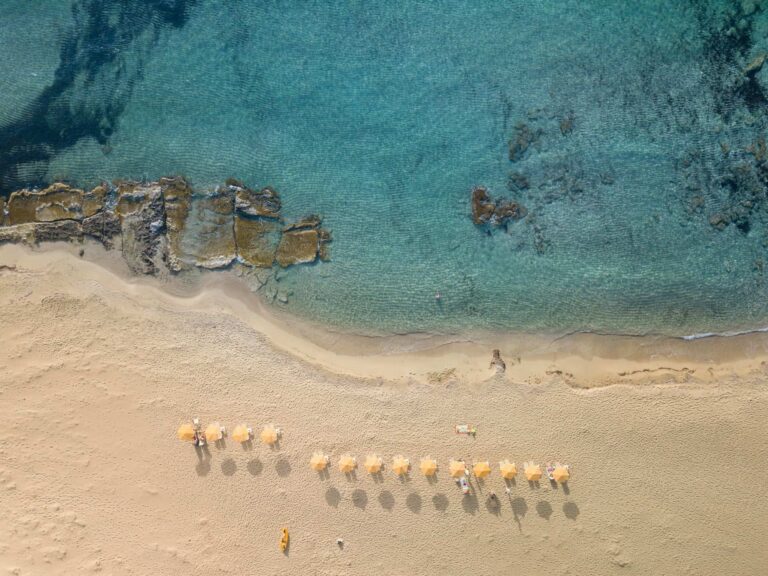Whether it’s a day spent by the seaside, swimming pool, or even in the waters of a shimmering lake – swimming is meant for merriment.
But it’s all fun and games until you start feeling sick after swimming. It’s not uncommon to experience flu-like symptoms after swimming in pools, lakes, rivers, and other natural bodies of water.
You may not have been aware of the risk of waterborne viruses, parasites, and bacteria lurking in the water – until now. According to the CDC, there is an increased risk of disease outbreaks associated with swimming in natural bodies of water during the summer months. But can you catch a cold from swimming in a pool or other bodies of water?
Can You Catch a Cold From Swimming in a Pool?
A CDC finding revealed that 1 in 3 swimming-related illnesses were related to hotel pools or hot tubs.
Swimming pools and natural bodies of water like lakes and even streams are full of germs that can make you sick. Some common issues you can get from swimming in a lake or pool include:
- Diarrhea
- Skin rashes
- Respiratory illness
- Cough and congestion
- Eye infections
- Ear infections or swimmer’s ear
People typically catch one of these nasty illnesses when they accidentally ingest contaminated water. Untreated natural bodies of water could be contaminated with wastewater, sewage runoff, flooding, or someone having an accident while swimming – breeding bacteria, pathogens, and parasites.
So, yes, since the bacteria that cause the common cold can enter water, you can catch a cold from swimming in a pool. Although the chlorine in the pool might kill some germs, it might not kill all of the bacteria.
Related Read: Stomach Flu vs Food Poisoning – How to Tell the Difference
How to Avoid Getting Sick from Swimming
Tips to avoid getting sick from swimming:
- Don’t swallow water: Even if you only swallow just a little bit of water, you can get sick. Don’t think that if a pool is chlorinated that the chemicals will kill all the germs, some kinds of germs can survive chlorine in swimming pools.
- Rinse off before and after you swim: Rinsing off at the communal showers may seem annoying, but it’s important to shower before and after going swimming. Washing your hands is also important.
- Take bathroom breaks: Make sure you take everyone out of the water for frequent bathroom breaks and diaper changes. If you or your children have had diarrhea recently, then you shouldn’t be in the water.
- Keep an eye on the weather: Warmer temperatures provide excellent breeding conditions for bacteria; as such, the bacteria count could be higher when the weather is warm, so it might be best to avoid swimming.
- Avoid swimming after heavy rainfall: Water is more likely to be contaminated after heavy rain or flooding.
- Keep your ears dry: Remember to dry your ears thoroughly after swimming, and if possible, try to keep your ears dry while swimming.
- Don’t swim with open wounds: Especially from surgery or piercings – open wounds can increase the risk of contracting an illness. If you go into the water with an open wound, ensure you cover the area with waterproof bandages.
- Don’t swim in murky water: If the water looks discolored, cloudier than usual, or smells bad. Discolored or smelly water could be an indication of Harmful Algal Bloom (HAB) in the area.
Signs You’ve Gotten Sick From Swimming
According to the CDC, the most common symptoms of recreational water illnesses are diarrhea, skin rashes, ear pain, cough or congestion, and eye pain. But other common ones to look out for include:
- Flu-like symptoms
- Fevers
- Shortness of breath
- Watery diarrhea
- Stomach cramps
- Nausea and vomiting
Is It Healthy To Swim In Cold Water?
Water temperature may play a part here too. According to a study conducted on Cold Water Swimming—Benefits and Risks: A Narrative Review, cold water swimming carries equal benefits and risks. Most popular in northern and polar regions, cold water swimming and winter swimming have long since been associated with building endurance both physically and mentally. So, is it safe to swim in the sea in winter? And can you get sick from swimming in cold water?
Well, for those brave enough (and healthy enough) to take the plunge, common health risks of swimming in winter or extremely cold water include hypothermia and cold-water shock. It’s always advisable to wear a wet suit, swim with other people, and not enter the water too quickly.
When it comes to overall swimming health, it’s important to keep in mind that there is the potential to develop water-related illnesses. However, some people with a weakened immune system may experience more severe illnesses if exposed to germs while swimming – especially those over the age of 50, smokers, and people with chronic lung disease.
Can You Swim With A Cold or Fever?
When you have a cold or fever, it is generally recommended to avoid swimming. Engaging in swimming activities while ill can potentially worsen your condition and prolong your recovery time. Swimming requires physical exertion and may put strain on your body, which can be counterproductive when your immune system is already compromised.
Additionally, swimming in public pools or bodies of water with a runny nose can expose others to your illness, spreading germs and potentially causing harm to others. It is best to prioritize rest, stay hydrated, and seek appropriate medical advice to recover fully before resuming swimming activities.
If you feel sick after swimming in a lake, pool, or other bodies of water, you should contact a doctor. Download the Air Doctor app now and speak to a medical professional within minutes.












